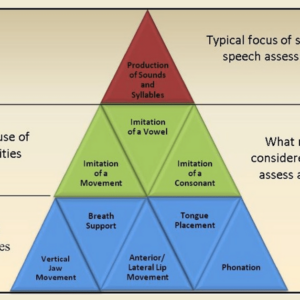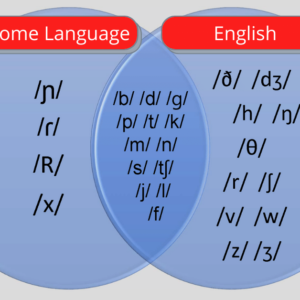How to Plan Efficient and Effective Speech-Language Evaluations
$15.00

Course Type: Video – 1 hour
ASHA Course Code: Developmental Language Disorders – 3010
Many SLPs find that the evaluation process is cumbersome and overly time consuming.
Pulling from years of mentoring SLPs, we’ve identified areas to maximize efficiency in the evaluation process without sacrificing accurate diagnostic practices. In this course, we share ways to use background information and parent input to plan an efficient evaluation.
Additional Information
| Population | Early Childhood, School Age |
|---|---|
| Duration | 1 hour |
| Credit | .1 Continuing Education Unit |
| Topics | Evaluations |
| Format | Video |
Financial Disclosure: Ellen Kester, Ph.D., CCC-SLP. Dr. Ellen Kester is the owner of Bilinguistics and receives a salary. Bilinguistics receives royalty payments for online courses.
Non-Financial Disclosure: Ellen Kester does not have any non-financial relationships to disclose.
One of the biggest mistakes clinicians, especially those newer to the field, make in conducting speech-language evaluations is that they DO TOO MUCH TESTING.
We’ve had many Clinical Fellows do their training at Bilinguistics and it is very common that when they set out to do their first evaluations, they want to run a student through every test on the shelf! Or at least every subtest on the CASL-2 or the CELF-5.
Why? I can think of some reasons.
This is new and they haven’t figured it all out yet. And THAT’s okay.
Graduate school training programs want to be thorough and give students evaluation opportunities. Students have to have evaluation hours across many different categories to graduate. So, sometimes people run tests that really don’t have to be run. Do we get good information from those tests? Sure. Do we learn from administering them? Yes. Could we do it more efficiently? Most often, yes!
Sometimes our places of employment provide testing guidelines that “require” two standard scores in each area and informal data to boot. I’ll say this…if your employer requires a lot of testing that is not necessary to do your job effectively, advocate, advocate, advocate. Talk to your supervisor, manager, team lead. I will tell you that there is not a leader out there who does not want to hear, “I can do my job just as effectively in less time than I am currently doing it.”
Sometimes insurance companies have requirements for standardized scores that don’t make any sense. Several years ago, we sat down to multiple meetings with a group that was requiring standardized scores for students who came from language backgrounds for which there are no standardized tests. Eventually, we convinced them that we needed to change the rules.
So how do we create efficient plans for speech and language assessments?
In the course, we will talk about the three biggest mistakes clinicians make that cost them TIME in the evaluation process.
We will talk about how we can effectively utilize information from parents and teachers to hone in on the perfect testing plan.
Let’s face it, the referral packets we receive can be daunting! Sometimes they are inches thick and it’s a lot of information to go through.
In this workshop, we are going to walk through case studies of actual referral packets and develop evaluation plans.
Now, we all know that plans, change. That’s going to be true for our evaluation plans too.
We are creating the beginning of our plan and we are going to let our first steps in the evaluation guide the rest of our planning.
The case studies we will explore will guide us on our beginning steps, which are informed by parents and teachers, as well as the heart of our evaluations that will guide us the rest of the way through.
You don’t want to miss this course. Yes, it’s an hour of your time BUT you’ll get that back in the time you save in all of those evaluations you have coming up!
Participants will:
Use referral information to create an evaluation plan.
Utilize the results of language samples to modify an evaluation plan.
Select appropriate formal and informal measures to get the information you really need
Time-Ordered Agenda:
05 minutes Introduction to the topic
10 minutes Three mistakes people make in planning (or not planning) evaluations
10 minutes Using referral information to drive your plan
10 minutes Using the language sample to hone your plan
20 minutes Case studies
05 minutes Conclusion and questions
Need CEUs?

 Share
Share
 Tweet
Tweet
 LinkedIn
LinkedIn
 Pin
Pin
 Email
Email





